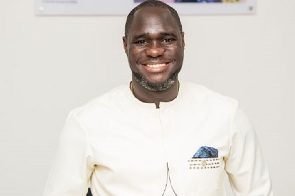Accra, Aug. 19, GNA - President John Agyekum Kufour on Saturday called on journalists to pursue programmes and courses that would enhance their personal development to enable them contribute better to the socio-political discourse of the country.
He said informing and creating awareness among the populace to understand day-to-day affairs of the nation demanded that journalists become abreast with current trends and issues to avoid misinformation. Speaking at the 12th edition of the Ghana Journalists' Association Awards Night where he received a special award for his contribution towards the development of the media, President Kufour recalled the pioneering role of people such as Mabel Dartey and Dr Paul Ansah in the struggle of independence.
He said government was committed to helping journalists to play their watchdog role very effectively, adding that the repeal of the Criminal Libel Law and the enactment of the Whistle Blowers bill were some policy interventions to ensure that journalists worked in a secured environment.
President Kufour said government had appointed many journalists into distinguished positions and responsibilities in view of the importance it attached to them and urged them not to neglect the fact the freedom of expression went with responsibility.
He cautioned journalists against the use of sensationalism, just to sell a paper, or for political advantage.
Most Rev. Charles Palmer-Buckle, the Metropolitan Archbishop of Accra, speaking on the theme: "Ghana @50, Safeguarding Democracy Through the Media," called on journalists to reflect on their profession and work as prophets carrying good news to liberate the oppressed, set captives free, as well as bring hope to the poor. He said journalists should use their tool, which is the 'word' to affect lives positively, bearing in mind that they were answerable and accountable to the people they served.
"You should see the 'word' as an active instrument which could produce good or deadly results."
Archbishop Palmer-Buckle said as the "Fourth Estate of the Realm", journalists should work in an environment of truth, good conscience, nobility and a quest for duty, which was the only way they could contribute effectively to development. "The media practitioner in Ghana today must be a person who is guided by nobility and quest for virtue, particularly by the supreme good of the people to whom he or she has been sent". He said the media should revisit its core duty of informing and transforming the individual, as well as, the society, adding that, it was its duty to aid all other institutions to form, inform and transform the human capital of the country.
Archbishop Palmer-Buckle noted the passing away of Ghana @ 50 and called on the Ghanaians to rethink of how the nation could be shaped for the better in the next decades.
Mrs Gifty Affenyi-Dadzie, Member of Council of State, who chaired the event, called on journalists to exhibit high journalistic standards. She called on the GJA to work hand-in-hand with other organizations such as National Media Commission to ensure good practices. Mr Ransford Tetteh, President of GJA, said despite numerous challenges the practice of journalism faced, journalists would work hard to hold the public accountable to ensure good governance. He appealed to journalists to be circumspect in their reportage particularly as the country enters a very hot political campaign period next year.
Mr Tetteh urged policy makers to widen their frontiers to the media through the passage of the Freedom of Information Bill to enable it play its watchdog role very effectively.
He urged the media to continue to work at finding solutions to social problems such as diseases and poverty to alleviate the suffering in society.
Mrs Oboshie Sai-Cofie, Minister of Information and National Orientation, called on journalists to improve their knowledge and expertise, adding that it was the only way Ghanaian journalism could assume its rightful place as a regulatory mechanism.
General News of Sunday, 19 August 2007
Source: GNA
















